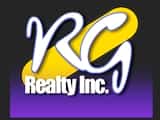
Moving your business to a new location can be both exciting and difficult. As you prepare for this transition, mastering the art of negotiation becomes paramount, especially when securing favorable lease terms. The right lease terms can significantly impact your business’s bottom line and long-term success. This article will explore unique tips to help you secure the best lease terms when moving your business. From understanding your space needs to leveraging timing and exploring creative lease structures, each tip empowers you to negotiate effectively.
Know Your Space Needs Inside Out
Understanding your space requirements is important when negotiating lease terms for your business. Before entering into negotiations, thoroughly assess your current and future space needs. Consider factors such as employee headcount, equipment, and projected growth. Knowing what space you need can help you bargain more skillfully and prevent you from overcommitting to a location that might not work out in the long term. Also, explore flexible leasing options that accommodate potential changes in your business’s size or structure. Whether you anticipate expansion or downsizing, negotiating with a comprehensive understanding of your space needs will empower you to secure a lease agreement that aligns with your business objectives.
Research Market Trends and Rates
Before entering into lease negotiations, conducting thorough research on local market trends and rental rates is essential. By understanding the current market conditions, you can negotiate from a position of knowledge and strength. Compare rental rates in different areas to identify competitive pricing benchmarks. This information will be valuable during negotiations, allowing you to advocate for fair and reasonable terms. Monitor market trends and fluctuations, as they can impact the negotiating landscape.

Timing is key when leveraging market trends to your advantage, so stay informed and act decisively. To get the timing of your move just right, you should also hire efficient and reliable movers. Look for professionals with a long history and experience that comes with it so there are no major troubles when moving. For instance, choicerelocation.com specializes in commercial moving, and they will ensure that your business relocation goes without hiccups and that your timing is right. They can streamline the entire moving process, significantly minimizing downtime for your business. Handling all logistical aspects efficiently, they help maintain your operational continuity during the transition, ensuring you don’t miss out on market opportunities.
Leverage Timing to Your Advantage
Understanding lease trends and market cycles can help you schedule your negotiations properly to get the most advantage. Avoid peak leasing seasons when demand is high, and landlords may be less willing to negotiate. Instead, aim to negotiate during periods of lower demand or market fluctuations, when landlords may be more open to concessions. Keep a close eye on market conditions and swiftly act when opportunities arise. By leveraging timing to your advantage, you can increase your chances of securing favorable lease terms for your business. Timing isn’t just about when you negotiate—it’s about when you seize the opportunity to secure the best possible terms for your business’s future.
Negotiate Beyond Rent: Additional Costs Matter
When negotiating lease terms, it’s essential to consider more than just the base rent. Additional costs can significantly impact your overall expenses and should not be overlooked. Negotiate terms for utilities, maintenance, and repairs to ensure clarity and fairness. Understanding these additional costs upfront can prevent surprises and help you budget more effectively. Don’t hesitate to inquire about hidden fees or charges that may not be immediately apparent. Addressing these costs during negotiations can avoid unexpected financial burdens and ensure a more transparent leasing arrangement.

Lease negotiations encompass more than just the monthly rent— they cover all costs associated with occupying the space, allowing you to craft an agreement that safeguards your business’s financial future. Also, be aware that moving costs will add to your expenses. Moving a business from Virginia to Maryland, for instance, although not a great distance, involves complexities that can significantly increase costs. Therefore, to avoid damages to your items and additional expenses, leave the task to commercial movers who are reputable and experienced. That guarantees your relocation is handled correctly, protecting your assets during the move.
Get Creative with Lease Structures
Exploring alternative lease structures can offer your business flexibility and cost-saving opportunities. Rather than sticking to traditional lease formats, consider options like graduated leases or subleasing arrangements. These alternative structures can provide solutions that better suit your business’s needs. Negotiate for favorable lease renewal terms to ensure long-term stability and flexibility. By thinking outside the box and being open to innovative lease structures, you can create a leasing agreement that aligns closely with your business objectives. Don’t be afraid to propose creative solutions or modify standard lease agreements.
Prioritize Flexibility for Business Growth
Flexibility is key when negotiating lease terms for your business’s future growth and development. Emphasize the importance of flexibility in your negotiations, highlighting the need for provisions that accommodate expansion or contraction. Negotiate for clauses that allow for alterations and improvements to the space as your business evolves. Secure rights for alterations and improvements to maintain control over the space and support your business’s growth trajectory. Flexibility isn’t just a convenience—it’s a strategic advantage that positions your business for long-term success. By negotiating flexibility in your lease terms, you can future-proof your space and create an environment that fosters growth and innovation.

Seek Professional Legal Advice to Secure the Best Lease Terms when Moving
Navigating the complexities of lease negotiations can be daunting, so seeking professional legal advice is essential. Consulting with a commercial real estate attorney can provide valuable insights and guidance throughout the negotiation process. When moving business, your attorney can ensure that your lease terms align with your goals and protect your interests. They can also help decipher legal jargon and identify any potential pitfalls or areas of concern in the lease agreement. You may approach talks with confidence if you employ the help of a legal expert since you will have an informed advocate on your side. Building a strong legal foundation for your lease agreement is important for minimizing risks and safeguarding your business’s future.
Summary
Mastering negotiation tactics is paramount when securing lease terms when moving your business. The unique tips in this article offer valuable insights and strategies to empower you throughout the negotiation process. From understanding your space needs inside out to leveraging timing and exploring creative lease structures, each tip is designed to enhance your negotiating prowess. By prioritizing flexibility, seeking professional legal advice, and building strong landlord relationships, you can navigate lease negotiations with confidence and clarity. Negotiations involve securing a lease and laying the foundation for a successful business venture.
- https://www.pexels.com/photo/delivery-man-wearing-a-face-mask-carrying-boxes-4391478/
- https://www.pexels.com/photo/crop-man-taping-carrying-box-with-scotch-4246120/
- https://www.pexels.com/photo/person-using-forklift-1267338/
- https://www.pexels.com/photo/crop-faceless-person-with-cash-and-calculator-app-on-smartphone-4386292/

